Innovation activity
The Office of Innovation and Intellectual Property coordinates the scientific research and development works, pilot productions, student design bureaus carried out at the university and unites all research departments of the university, research institutes, scientific centers and technopark in matters of innovation.
The purpose of the Office of Innovation and Intellectual Property is to contribute to most efficient use of the scientific and intellectual potential of al-Farabi KazNU, as well as to the complex development of scientific-research and scientific-industrial activities for increase of efficiency of Scientific Research and Development Works’ results and training quality, organization of innovative activities, realization of educational programs and strengthening of the international cooperation of scientists and experts.
The main task of the Office is to provide informational, methodological and organizational support for the activities carried out in the faculties, research institutes and other scientific and innovative departments of the university.

Innovative projects
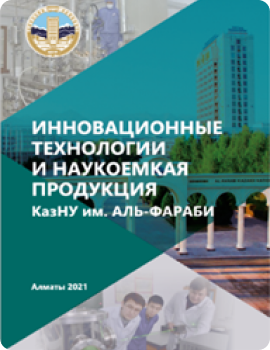
The 21st century is the century of new technologies, innovative developments and advanced research. At the same time, active integration processes are increasingly affecting the international scientific and educational space. Today, the development of human capital and investment in education and science are coming to the fore. Universities play the role of drivers for the development of economic and social processes, become leaders in scientific and technological changes.
KazNU named after Al-Farabi has strong projects for the development of an artificial satellite of the earth, two nanosatellites have been launched into outer space, which provide all possible assistance to agriculture and to address environmental issues. Also, our scientists carry out scientific projects in the field of nanoindustry and there are very significant results.
During the pandemic, university scientists implemented scientific projects to develop new medicines based on natural compounds.
We have published a two-volume "Innovative technologies and science-intensive products", which includes a detailed description of the results of 100 innovative developments of KazNU scientists. The task is to ensure close cooperation of university scientists with production, with the real sector of the economy, with large enterprises and increase the real contribution of the university to the country's economy.
Scientific projects

Creation of a pilot production of solvent-free acrylate paints with improved characteristics
Development of innovative products based on plant raw materials
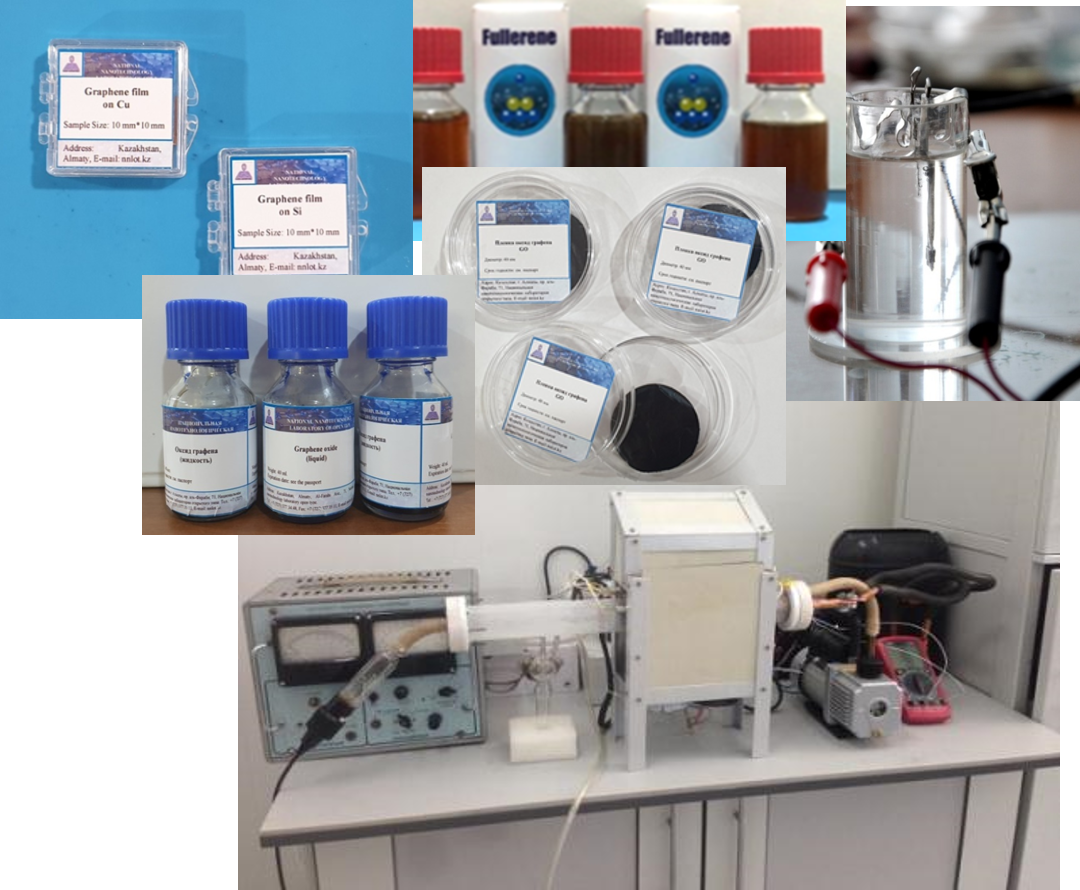
Organization of production of carbon nanostructured materials for a wide range of applications
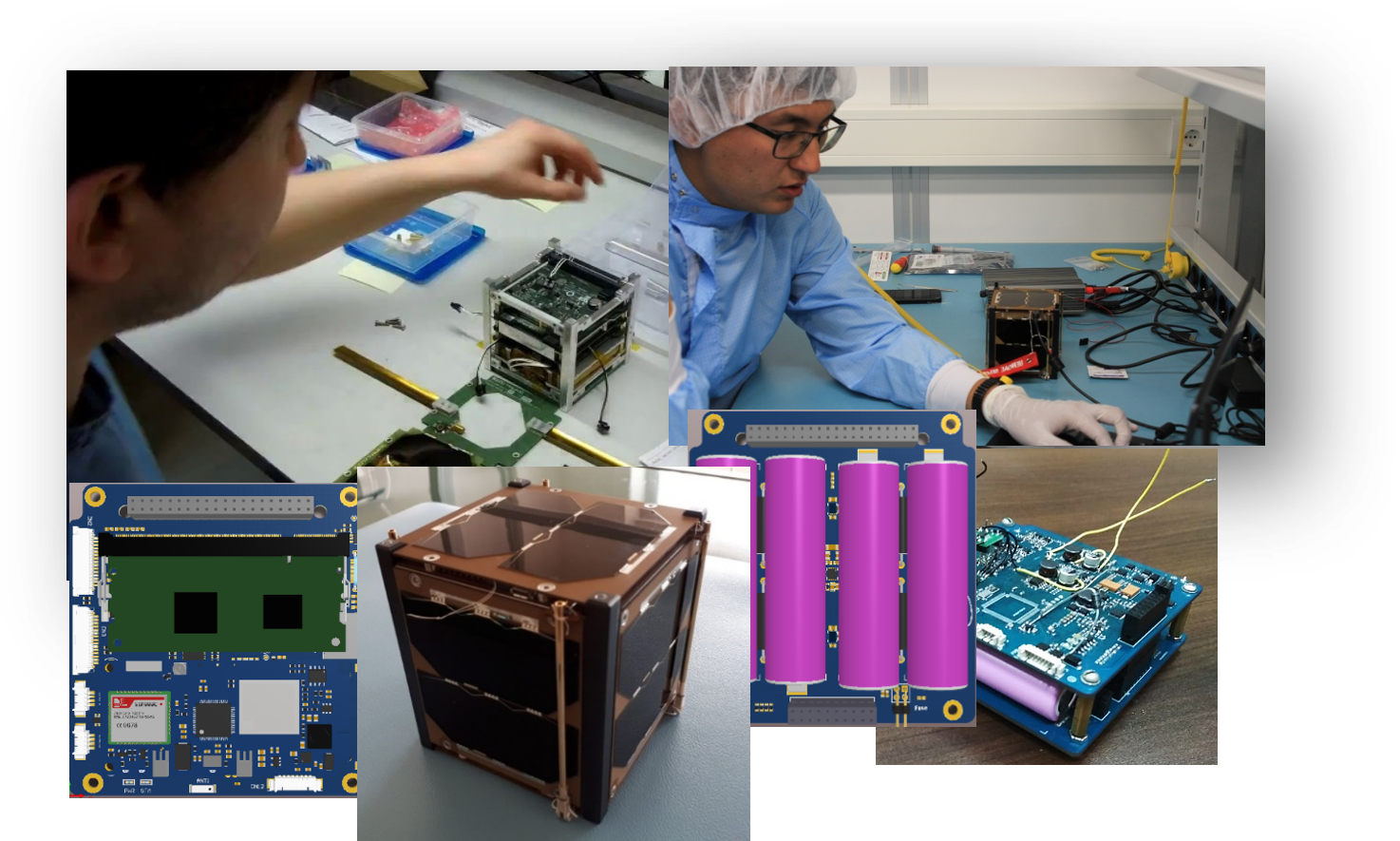
Production of innovative constructors of small spacecraft for educational institutions
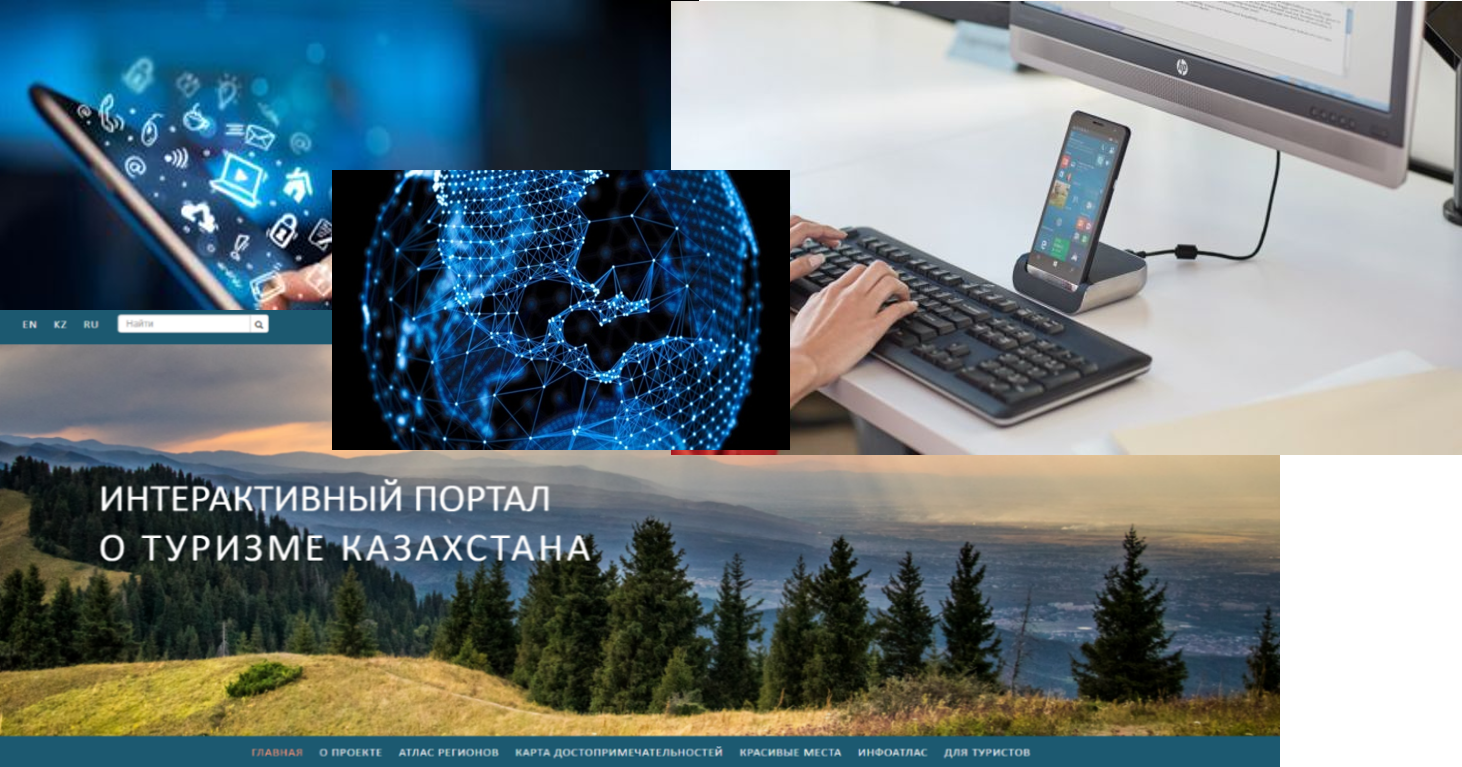
Modernization of tourism digital content: mobile applications, panoramic 3D tours, interactive maps and QR codes
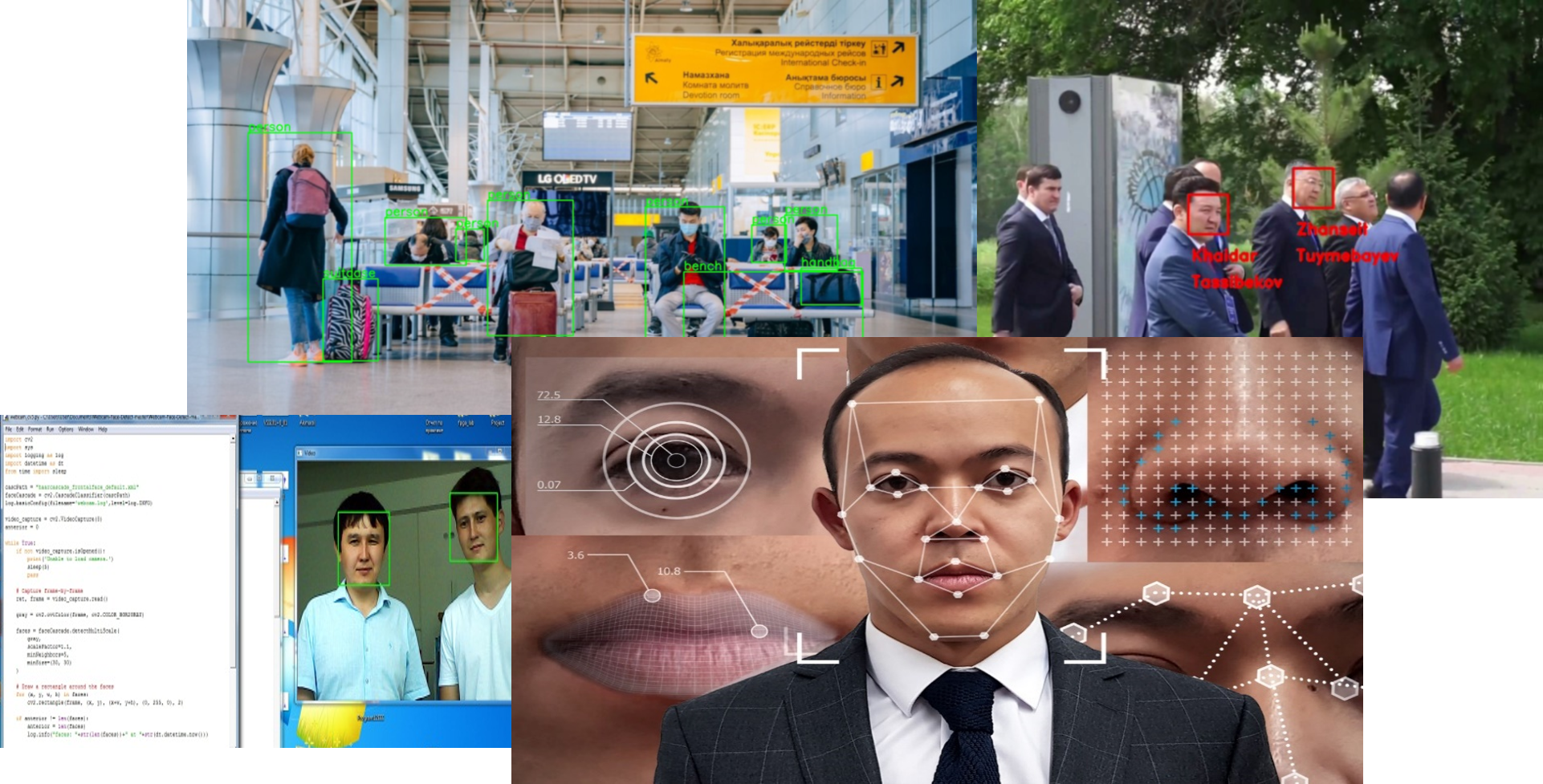
Machine vision based on an adaptable self-organizing neural network
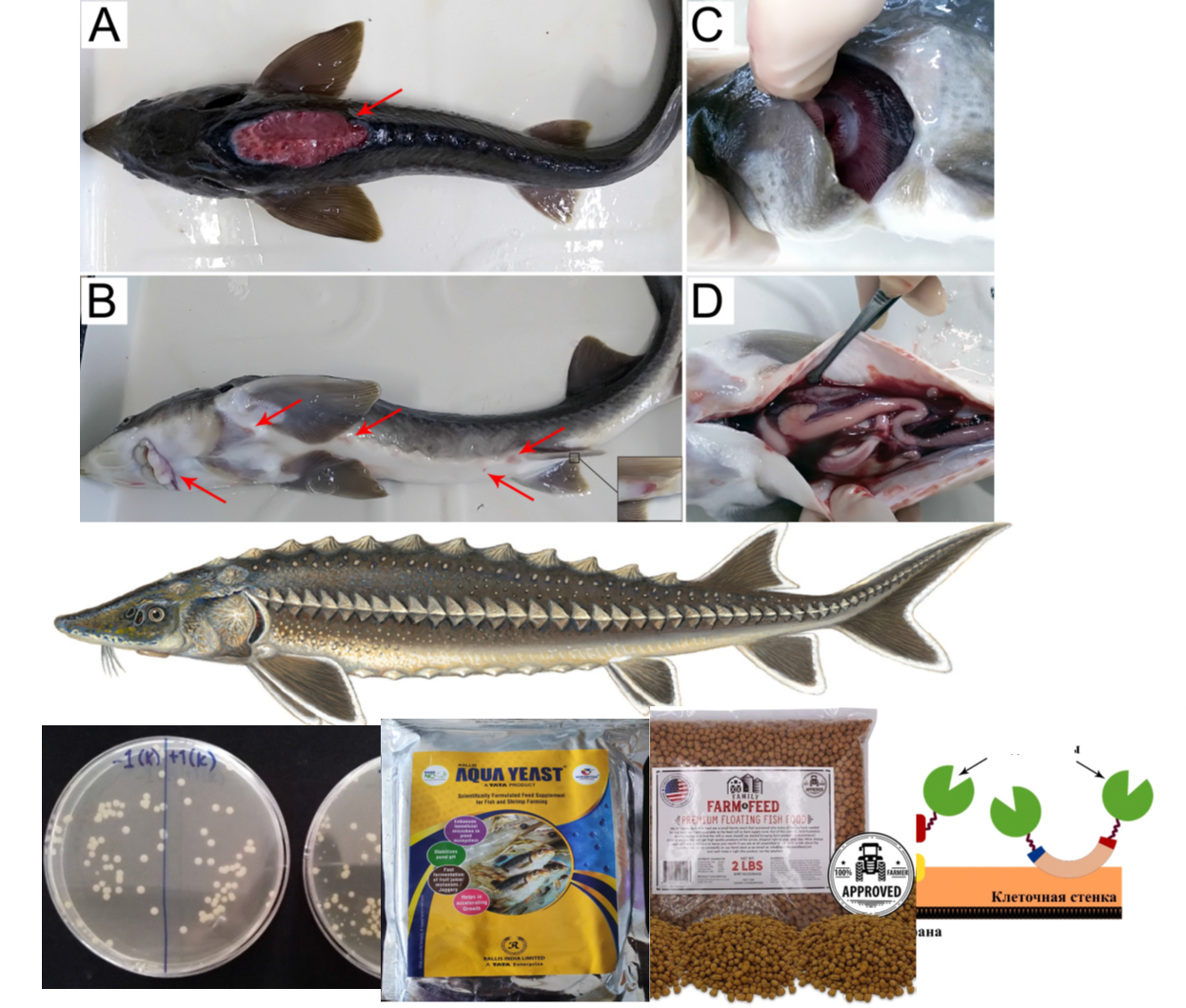
Antibacterial drugs for a treatment of diseases of sturgeon fish
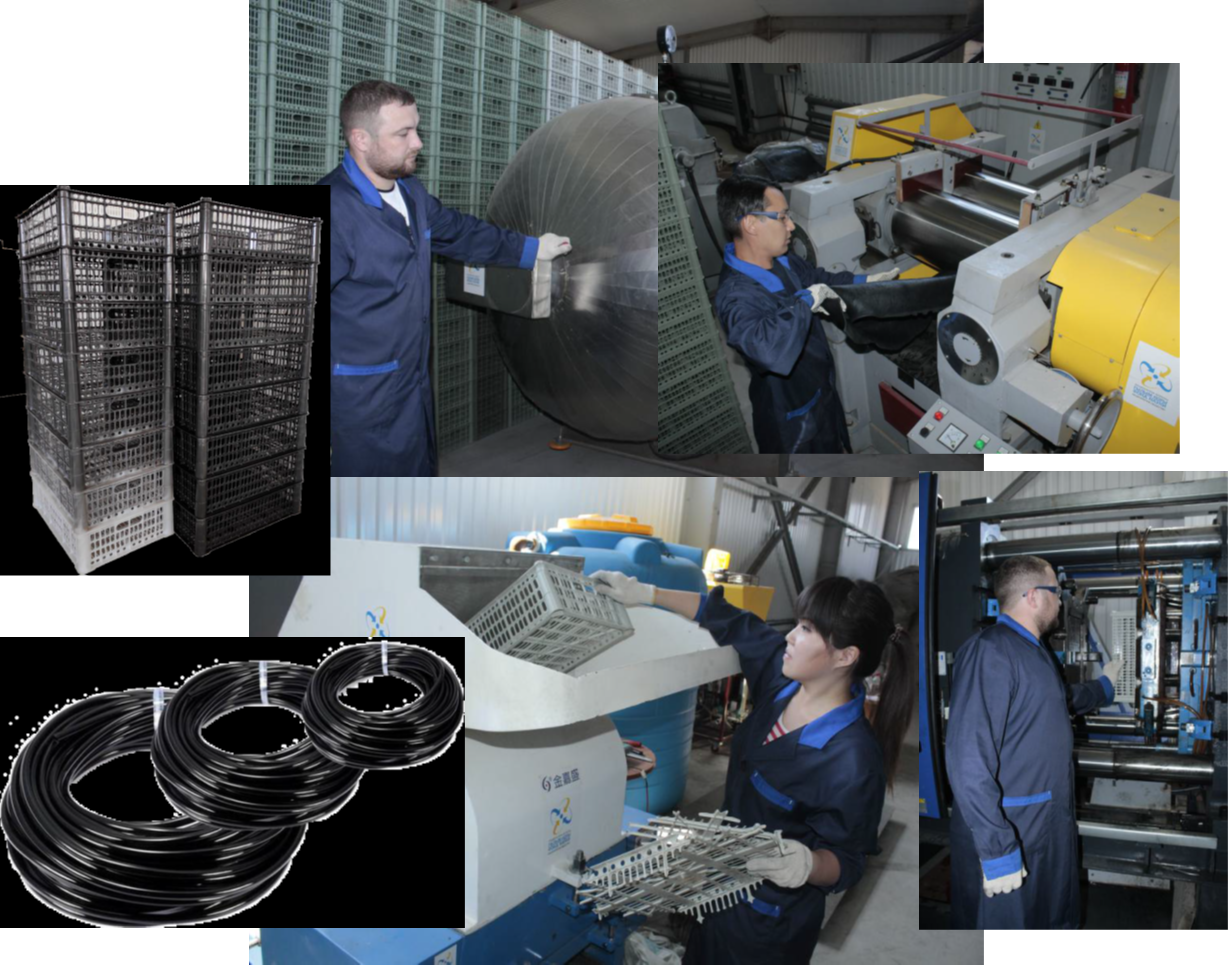
Creation of pilot production of new composite materials based on carbon-mineral raw materials of Kazakhstan

Psychophysiological markers of depression
Virtual photo exhibition "ЭТНОЭКСПЕДИЦИЯ"
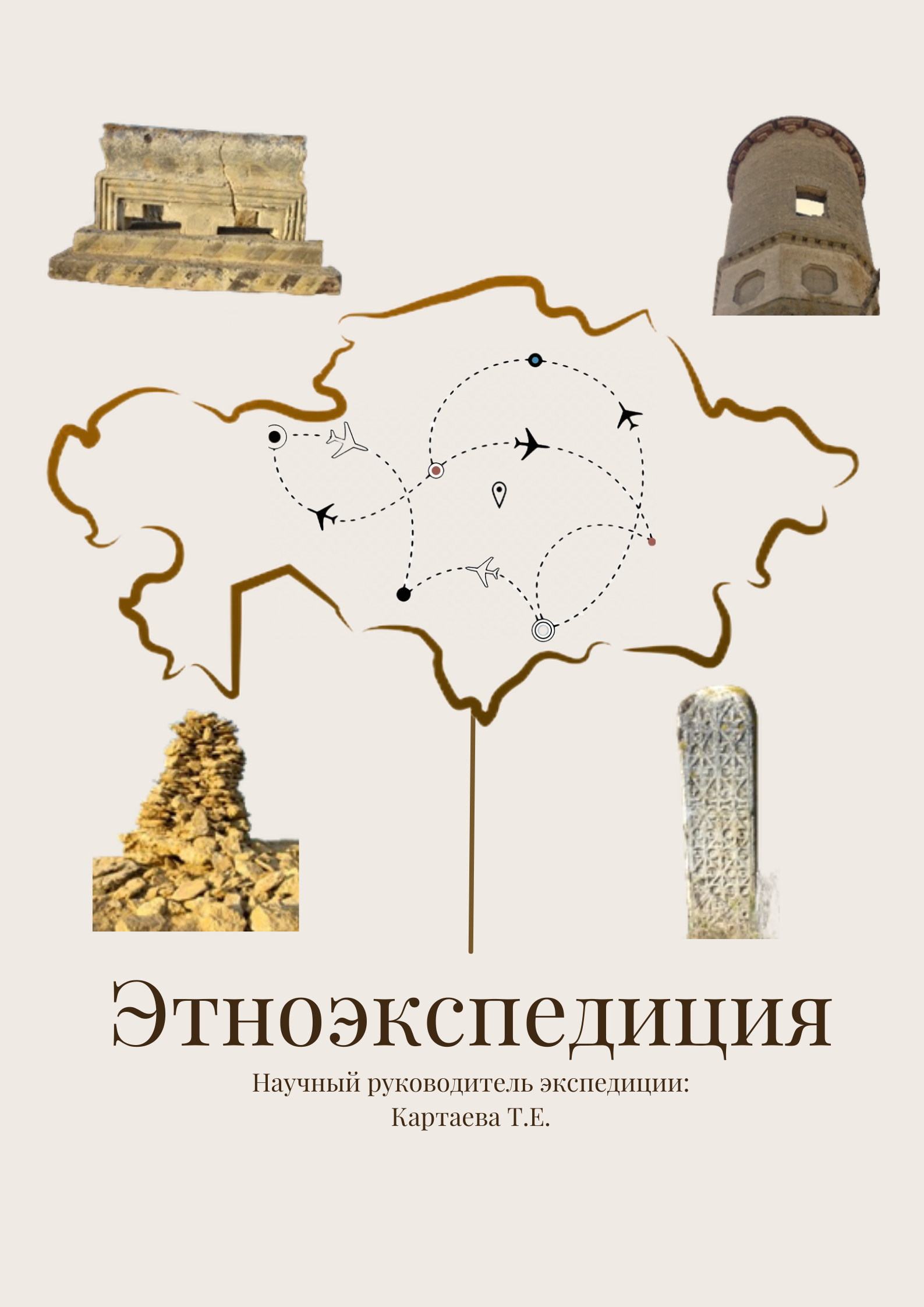
About ethno-expedition
А grave with the walls made of saxaul. Karaotkel necropolis. North Kyzylkum, Kyzylorda region.
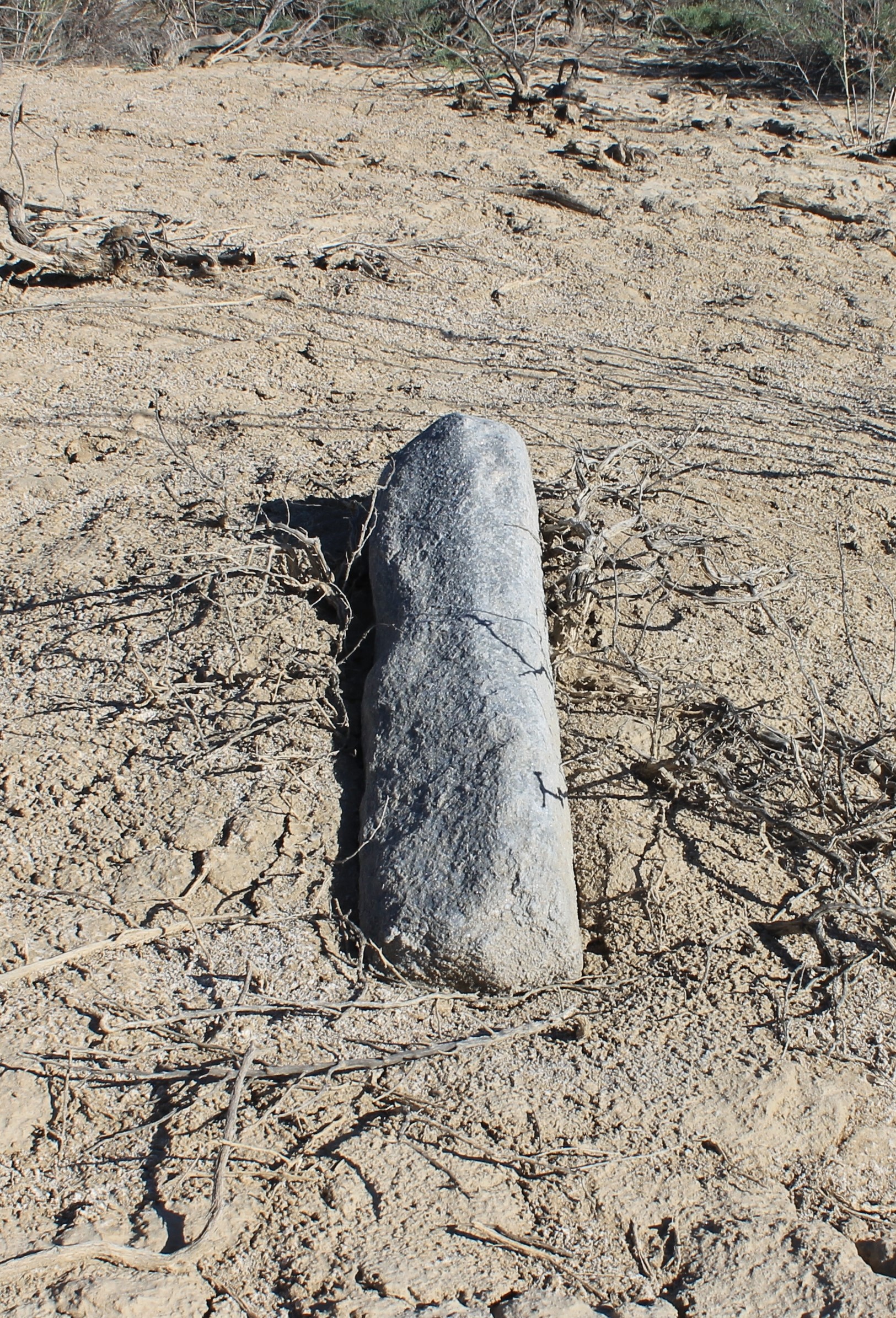
Kairaktas - view of "kulpytas" and the grave of saxaul. Mulkilan aulie necropolis. Kyzylorda region.
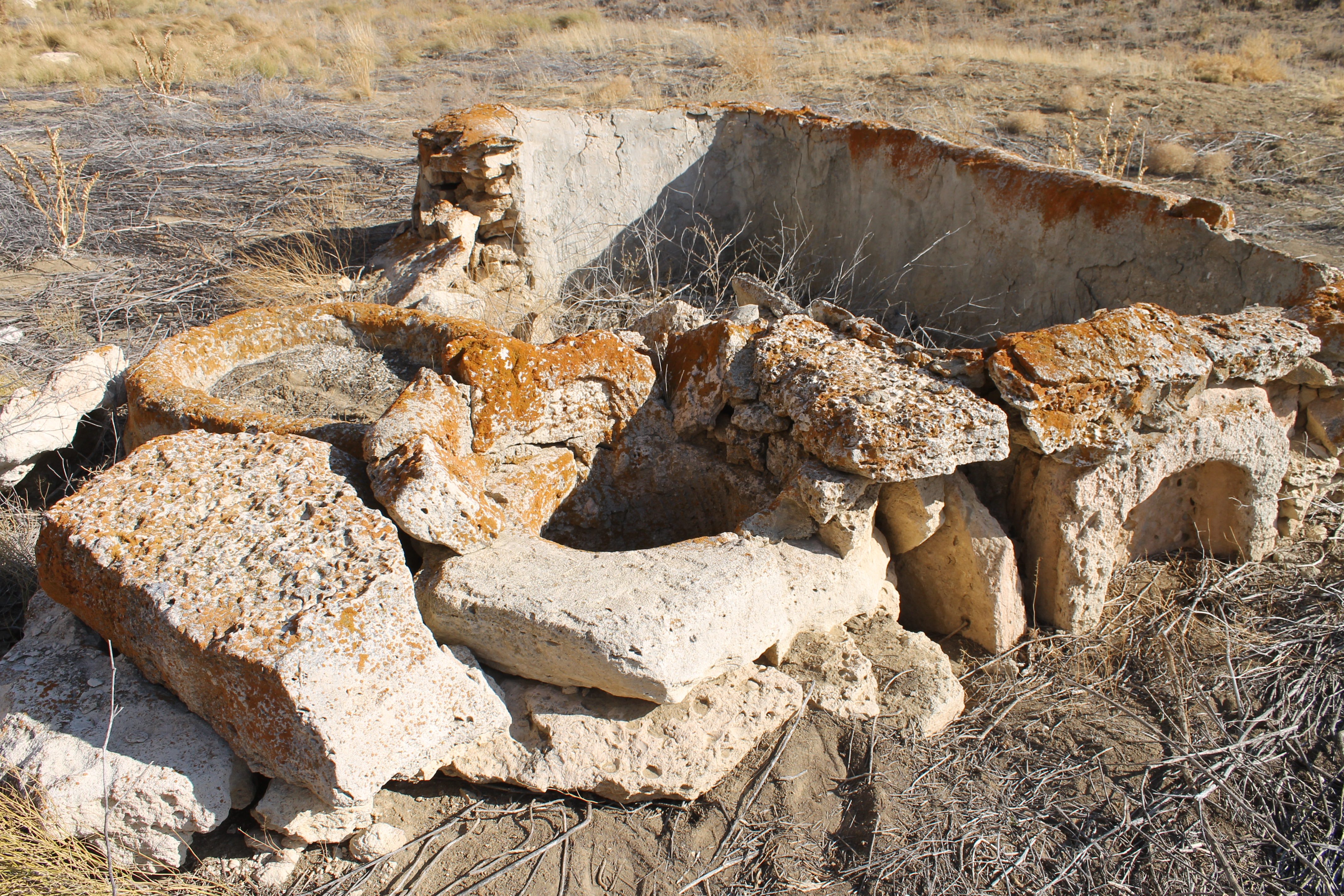
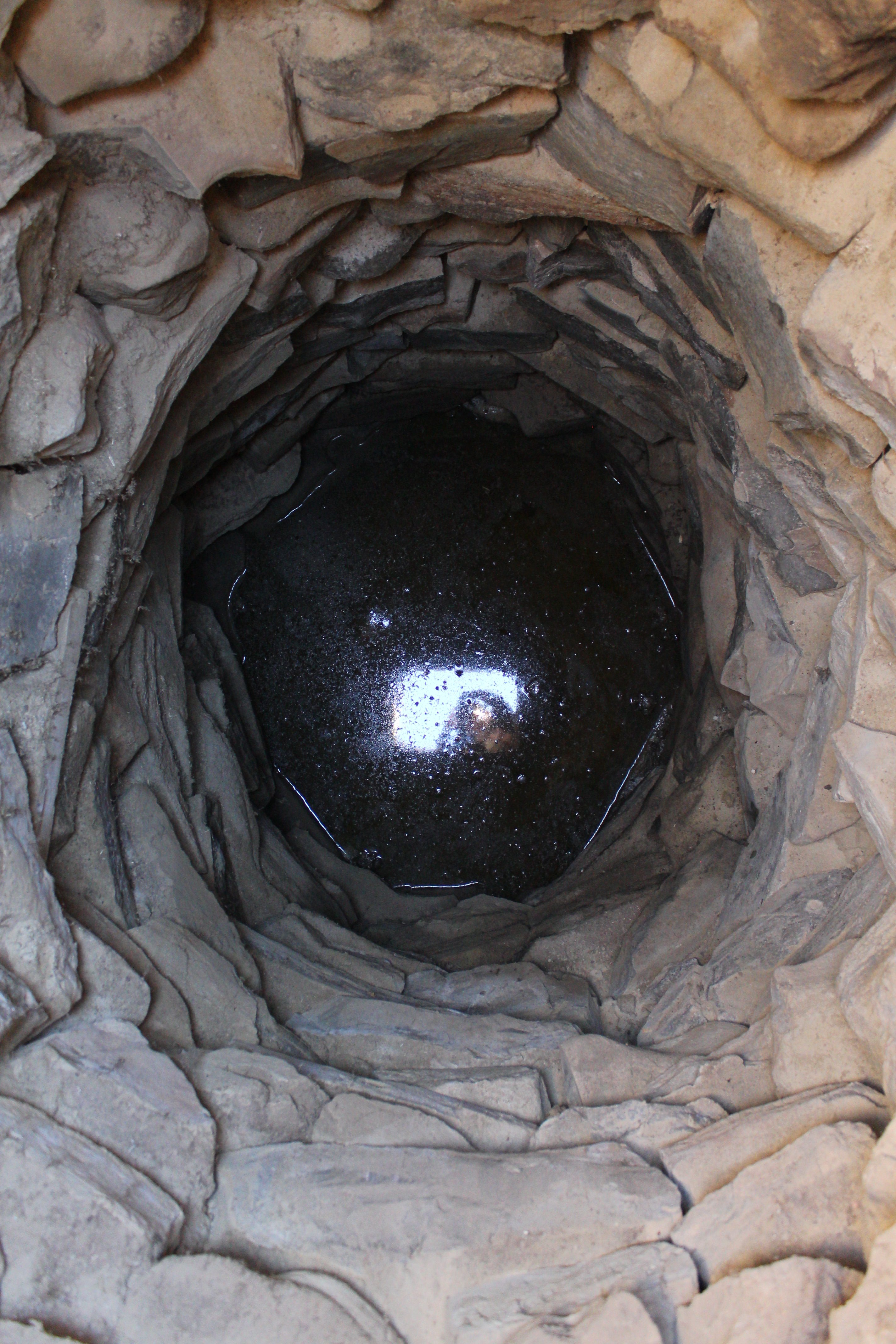
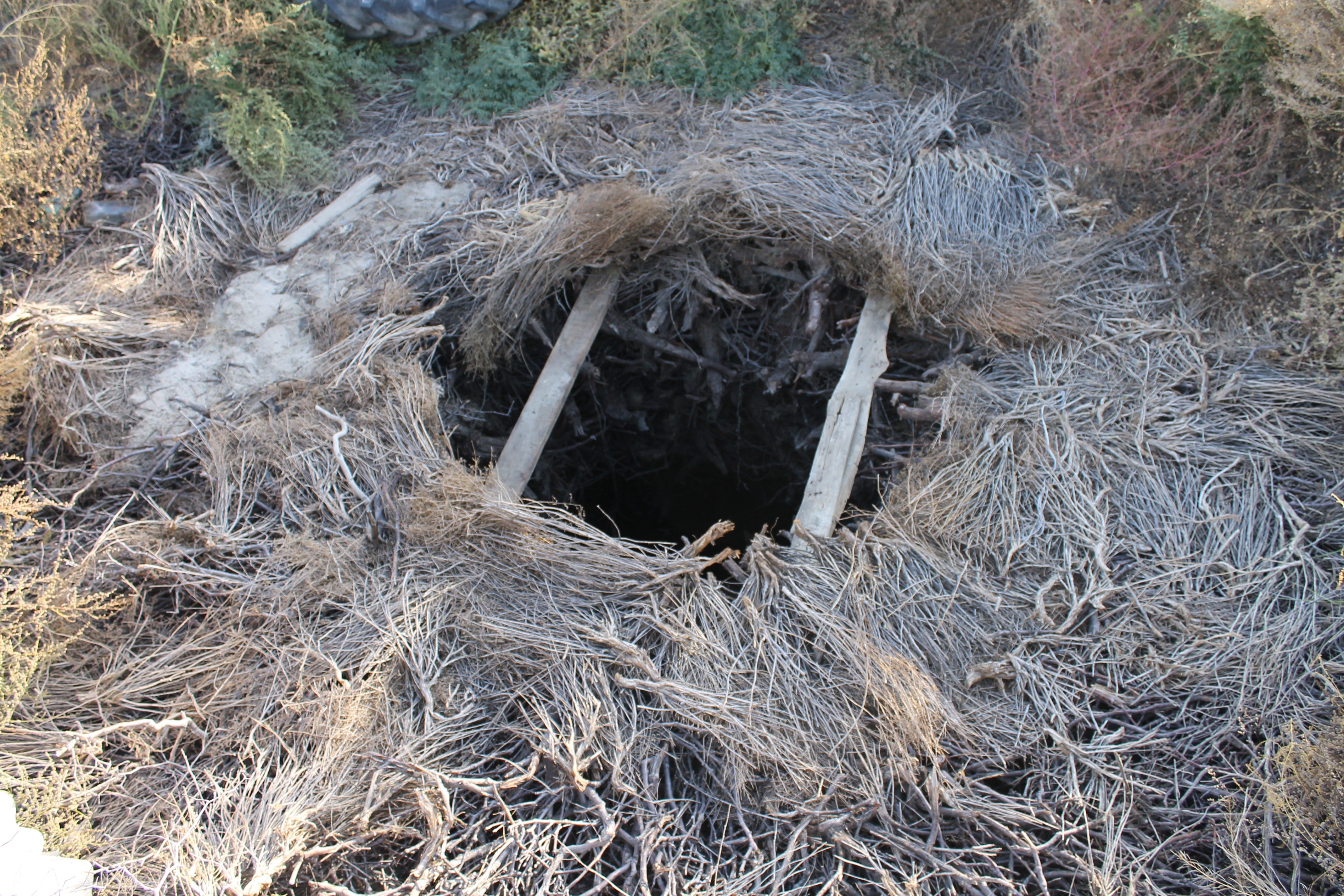
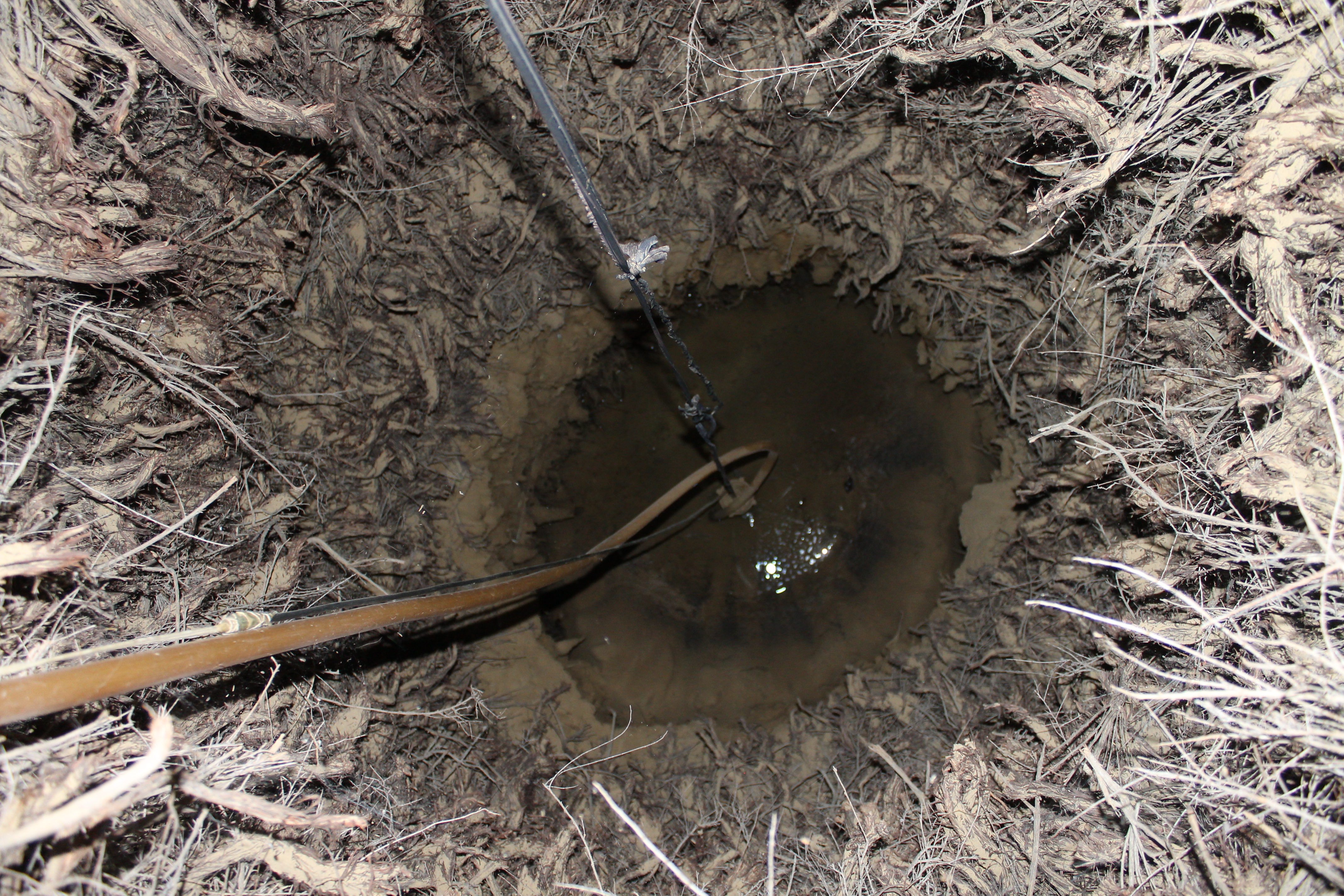
- Invention
Technical solutions in any area relating to the product (device, substance, microorganism strain, plant or animals cell culture), the method (the process of performing actions on a material object with the help of material means), as well as the use of a known product or method for a new purpose or a new product for a specific purpose are protected as an invention.
The legal protection of the invention is granted, if it is new, has an inventive level and is industrially applicable.
- Utility model
The utility model includes technical solutions in any field related to the product (device, substance, strain of microorganism, cell culture of plant or animals), to the method (the process of performing actions on a material object by means of material means), as well as the use of a known product or method for a new purpose or a new product for a specific purpose, with the exception of diagnostic, therapeutic and surgical methods of treatment of humans or animals.
The legal protection of the utility model is granted, if it is new, and industrially applicable.
- Industrial design
An industrial design refers to the artistic and design solution of a product of industrial or handicraft production that determines the appearance of the product.
The industrial design is provided with legal protection, if it is new, original.
- Selection Achievement
A patent is issued for a selection achievement that has novelty, distinctness, uniformity and stability.
The scope of legal protection provided by a patent for a selection achievement is determined by the totality of characteristics included in the description of the variety, breed.
- Copyright
Copyright - personal non-property and property rights of the author.
Copyright and related rights protect the rights of authors, artists, musicians, artists, broadcasters and other creators in their literary or artistic works and works.
- Trademark
A trademark is a mark used to distinguish goods (services) of certain legal entities or individuals from similar goods (services) of other legal entities or individuals.
Visual, verbal, alphabetic, numeric, three-dimensional and other marks or its combinations may be registered as a trademark.
A trademark can be registered in any color or color combination.
- Protected designation of origins and Geographical indications
Protected designation of origin is a designation representing either the name of the country, region, settlement, locality or other geographical indication, as well as an indication derived from of such a name and become known as a result of its use in regard to the goods, special properties, quality, reputation or other characteristics of which are mainly related to its geographic origin, including the specific environment conditions and (or) human factors.
Geographical indications are a designation identifying a product originating from the territory of a geographical object, a certain quality, reputation or other characteristics of which are largely related to its geographical origin. At least one of the stages of the production of goods, which has a significant impact on the formation of its characteristics, should be carried out on the territory of this geographical object.
- Topologies of an integrated microcircuit
The topology of an integrated circuit is a spatial and geometric arrangement of a set of elements of an integrated circuit and the connections between them fixed on a material carrier. At the same time, an integrated microcircuit is a microelectronic product of a final or intermediate form, which is intended to perform the functions of an electronic circuit, the elements and connections of which are inseparably formed in the volume and (or) on the surface of the material on the basis of which such a product is made.
Тел: 8(727)377-33-33 вн. 19-32
E-mail: Natalya.Ankusheva@kaznu.edu.kz
- Laboratory of Electron Microscopy (Head of the Laboratory, Guseinov Nazim) http://nnlot.kz/RU/Lab1.html
- Laboratory of Nanostructures (Head of the Laboratory, Doctor of Physical and Mathematical Sciences, Professor Ilyin A.M.) http://nnlot.kz/RU/Lab2.html
- Laboratory of optical and electrical research methods (Head of the Laboratory, Candidate of Physical and Mathematical Sciences, Ryaguzov A.P.) http://nnlot.kz/RU/Lab3.html
- Sample preparation laboratory (Head of the Laboratory, Candidate of Physical and Mathematical Sciences, Kalkozova Zh.K.)) http://nnlot.kz/RU/Lab4.html
- Laboratory of X-ray structural analysis (Head of the Laboratory, PhD, Nakysbekov Zh.T.) http://nnlot.kz/RU/Lab5.html
- Laboratory of Synthesis of Nanostructured Materials (Head of the Laboratory, Doctor of Physical and Mathematical Sciences, Professor Abdullin H.A.) http://nnlot.kz/RU/Lab7.html

- Gas Chemistry https://cfhma.kz/cfhma/structure/research-department/research-department.php?ELEMENT_ID=67
- Inorganic Materials Science https://cfhma.kz/cfhma/structure/research-department/research-department.php?ELEMENT_ID=87
- Theoretical and Applied Physical Chemistry https://cfhma.kz/cfhma/structure/research-department/research-department.php?ELEMENT_ID=101
- Technology of Electrochemical Production https://cfhma.kz/cfhma/structure/research-department/research-department.php?ELEMENT_ID=52
- Ecology of Biosphere http://cfhma.kz/ecobio/
- Composite Materials https://cfhma.kz/cfhma/structure/research-department/research-department.php?ELEMENT_ID=54
- Organic Synthesis and Chemistry of Medicinal Substances https://cfhma.kz/cfhma/structure/research-department/research-department.php?ELEMENT_ID=56
- Radiation Ecology https://cfhma.kz/cfhma/structure/research-department/research-department.php?ELEMENT_ID=55
- Petrochemical Synthesis https://cfhma.kz/cfhma/structure/research-department/research-department.php?ELEMENT_ID=66
- Sorption and Catalytic Processes https://cfhma.kz/cfhma/structure/research-department/research-department.php?ELEMENT_ID=68
- Protection of Metals against Corrosion https://cfhma.kz/cfhma/structure/research-department/research-department.php?ELEMENT_ID=57
- Hydroelectrometallurgical processes https://cfhma.kz/cfhma/structure/research-department/research-department.php?ELEMENT_ID=65
- Metal Analysis https://cfhma.kz/cfhma/structure/research-department/research-department.php?ELEMENT_ID=53

The organizational structure of the Scientific Research Institute for Problems of Biology and Biotechnology includes the following research laboratories:
-
Molecular Genetics (Head of the laboratory, Academician of the National Academy of Sciences of the Republic of Kazakhstan, Doctor of Biological Sciences, Professor Bisenbaev A.K.)
-
Photobiotechnology (Head of the laboratory, Academician of the National Academy of Sciences of the Republic of Kazakhstan, Doctor of Biological Sciences, Professor Zayadan B.K.)
-
Comparative Anatomy of Plants (Head of the laboratory, Doctor of Biological Sciences, Professor Kurmanbaeva M. S.)
-
Biotechnology (Head of the laboratory, Doctor of Biological Sciences, Professor Boguspayev K.K.)
-
Applied Microbiology (Head of the laboratory, Doctor of Biological Sciences, Professor Zhubanova A. A.)
-
General Microbiology (Head of the laboratory, Doctor of Biological Sciences, Professor Mukasheva T. Zh.)
-
Chronobiology and Environmental Physiology (Head of the laboratory, Corresponding Member of the National Academy of Sciences of the Republic of Kazakhstan, Doctor of Biological Sciences, Professor Tulekhanov S.T.)
-
Laboratory of Ecological and Evolutionary Morphology and Biochemistry (Head of the Laboratory, Doctor of Biological Sciences, Professor Nurtazin S.T.)
-
Educational and Research Laboratory of Mutagenesis (Head of the laboratory, Doctor of Biological Sciences, Professor Kolumbaeva S.T.)
-
Environmental Toxicology (Head of the laboratory, Doctor of Biological Sciences, Professor Shalakhmetova T.M.)
- Laboratory for Algebra and Mathematical Logic (head of the laboratory – Doctor of Physical and Mathematical Sciences, Professor Badaev S.A.) Laboratory for Algebra and Mathematical Logic
- Laboratory for Differential Equations and Control Theory (head of the laboratory – Doctor of Physical and Mathematical Sciences, Professor Kanguzhin B.E.) Laboratory for Differential Equations and Control Theory
- Laboratory for Computational Mathematics and Mathematical Modeling (Doctor of Physical and Mathematical Sciences, Professor Abdibekov U.S.) Laboratory for Computational Mathematics and Mathematical Modeling
- Laboratory for Computational Technologies and Problems in Oil and Gas Industry (head of the laboratory – PhD Isakhov A.A.) Laboratory for Computational Technologies and Problems in Oil and Gas Industry
- Laboratory for Fluid, Gas, Plasma and Energy Mechanics (head of the laboratory – PhD Belyaev E.)
- Laboratory for Space Technologies (head of the laboratory – Candidate of Physical and Mathematical Sciences Rakisheva Z.B.) Laboratory for Space Technologies
- Laboratory for Computer Sciences (head of the laboratory – PhD Imankulov T.S.) Laboratory for Computer Sciences
- Laboratory for Intelligent Information Systems (head of the laboratory – Doctor of Technical Sciences, Professor Tukeev U.A.) Laboratory for Intelligent Information Systems
- Laboratory for Mechanics and Materials and Processes Research (head of the laboratory – Candidate of Physical and Mathematical Sciences, Associate Professor Seydakhmet A.Zh.)
- Student Laboratory “Design and Development of System Integrations” (head of the laboratory – PhD, senior teacher Nurakhov E.S.)
The main way of integration of Kazakhstan into the international trading system is standardization and metrology, which establish uniform requirements in the field of standards, metrology and certification. These three components form single technical infrastructure characteristics that are closely related to each other and, in turn, the components must be developed together, but in this case we can speak about the quality of a product.
However, for official recognition of ability of the laboratory to satisfy the requirements of service consumers in the field of testing, measurement or research, and also for performing certain types of tests and measurements to establish technical competence, it is necessary that the laboratories were accredited.
The list of university laboratories accredited in the system of accreditation of the LLP «National Accreditation Center» of the Committee for Technical Regulation and Metrology of the Ministry for Industry and New Technologies of the Republic of Kazakhstan for compliance with the «General Requirements for the Competence of Testing and Calibration Laboratories» ST RK ISO/IEC 17025-2007:
- National Nanotechnology Open Laboratory № KZ.I.02.1371 dated March 14, 2013;
- Laboratory of engineering profile № KZ.I.02.1383 dated May 2, 2013;
- Testing center of the subsidiary state enterprise on the right of economic management «Center of Physico-Chemical Methods of Research and Analysis» № KZ.I.02.0817 dated September 15, 2014;
- Testing laboratory «Research and comprehensive analysis of fossil fuels and refined products» of the subsidiary state enterprise on the right of economic management «SRI for New Chemical Technologies and Materials» № KZ.I.02.1572 dated February 3, 2015;
- «Laboratory of testing and quality control of electrical products» of the Department of Thermal Physics and Technical Physics № KZ.I.02.0801 dated September 15, 2015;
- Testing laboratory «Environmental expertise and monitoring» of the subsidiary state enterprise on the right of economic management «SRI of Ecological Problems» № KZ.I.02.1712 dated March 10, 2016;
- Testing laboratory «Investigation of mechanics of materials and processes» of the subsidiary state enterprise on the right of economic management «SRI for Mathematics and Mechanics» № KZ.I.02.1712 dated April 5, 2016;
- «Laboratory for production of chemicals for industry and agrochemistry» of the Faculty of Chemistry and Chemical Technology. Certificate of measurement status assessment № 70/16 dated December 28, 2016.
- Testing laboratory «Computer sciences» of the subsidiary state enterprise on the right of economic management «SRI for Mathematics and Mechanics» № KZ.I.02.2103 dated August 7, 2018
- Testing laboratory "Maslotest" of the subsidiary state enterprise on the right of economic management "Science and Technology Park" № KZ.I.02.2220 dated June 7, 2019
- Research and comprehensive analysis of fossil fuels and products of their processing 09 KZ.I.02.2220 dated December 30, 2021
- Research Institute of Environmental Problems KZ.Т.02.Е1090 dated June 8, 2022
KazNU student start-up initiatives facilitate the progression from conceptualizing a business idea to seeking financial backing, laying the groundwork for a business framework centered on innovative concepts and technologies designed to enhance the efficiency and practical relevance of research endeavors and advance research in priority scientific domains.
Some successful university startup projects include:
- "CONSULTING FAR EAST" - A venture providing consultancy services in the domains of foreign education, employment prospects, and medical tourism.
- "GREEN PEACE: ZHASYL ZHUREK" - A project aimed at ameliorating the environmental conditions in Almaty and enhancing eco-awareness among the populace of Kazakhstan, focusing on recycling plastic and paper waste through "Zhasyl Zhurek" initiative, as well as diversifying the product range.
- Startups "INDATA Analytics" and "INDATA Company"
- The "OQU" platform, a student startup initiative, facilitates the matchmaking between tutors and clients online for organizing educational sessions.
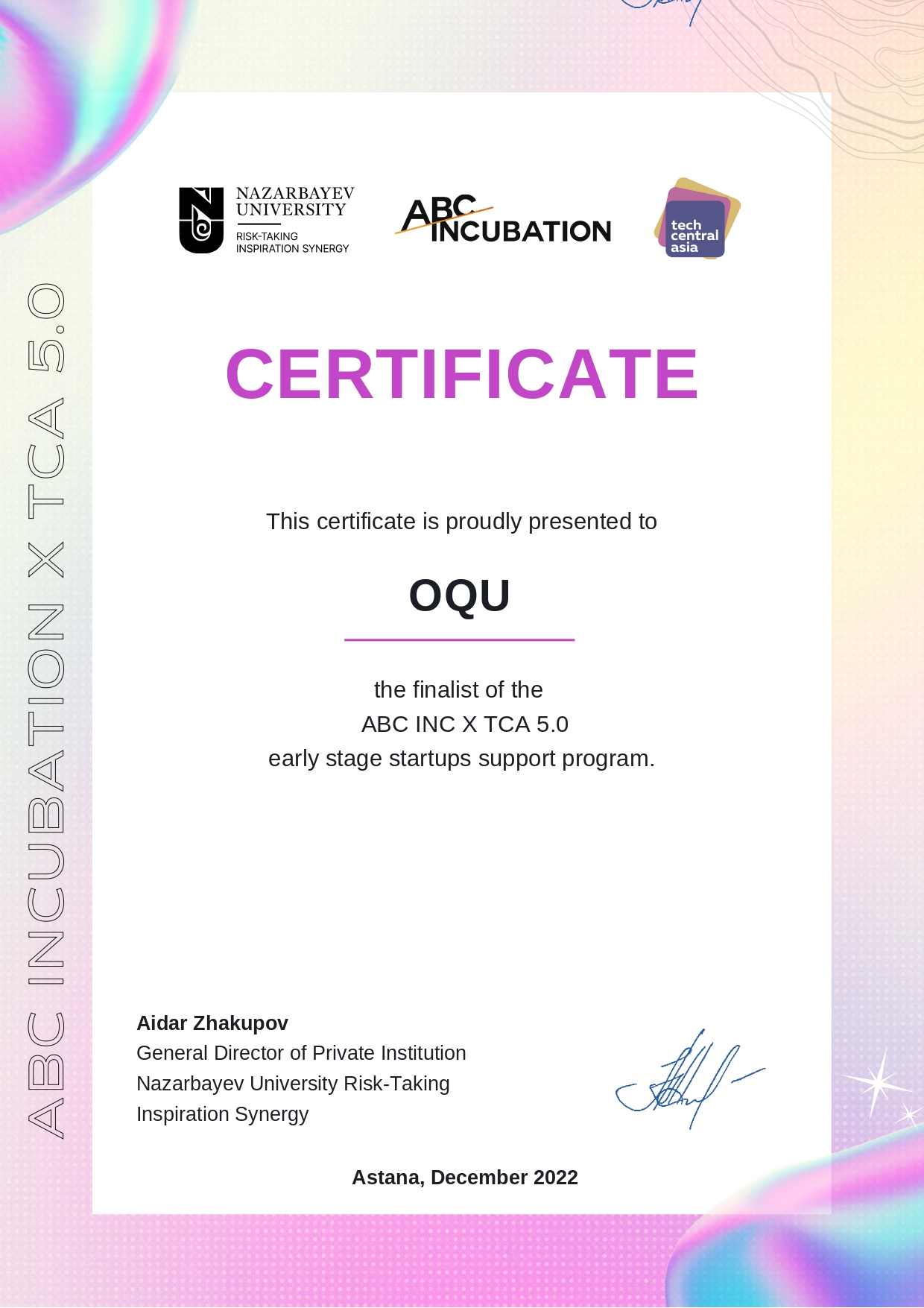

- Student craft startup programs like "Jewelry Production," "Inventor," and "Textile Production.
KAZNU HAS INITIATED A STARTUP PROJECT AIMED AT MANUFACTURING EDUCATIONAL STANDS.
Young researchers from Al-Farabi Kazakh National University are spearheading the initiative titled "Development of Educational and Laboratory Stands for Students Across Various Disciplines."
"The production of educational stands remains underdeveloped within the country, with many existing options being prohibitively expensive. Most commonly available are sets of electronic components, which operate using specialized graphical symbols and are unsuitable for studying analog elements. Hence, we see a significant opportunity to introduce our own products to the market. Presently, our project requires investment to proceed," explains startup engineer Galymzhan Aryn.
The domestic educational and laboratory stands, crafted by the project's creators, offer several advantages, including affordability, high quality, and a streamlined production process. Moreover, they boast a wide range of applications, with modifications tailored to meet the varying demands and requirements of educational institutions.
The team comprises development engineers Galymzhan Aryn and Merey Amangeldinov, along with students Meyrzhan Bauyrzhanuly and Yerzhan Tokenuly. Leading the startup are Doctor of Technical Sciences, PhD Daniyar Ismailov, and engineer Yerkin Aktaev.
The startup project's products are primarily geared towards facilitating the learning process across educational institutions, including universities, secondary specialized schools, and lyceums.
At present, the team has successfully acquired patents for the training stands they developed, including the "Training Stand for Electrical Circuit Theory," "Training Stand for Fiber-Optic Communication Networks," and "Training Stand for Digital Electronics." These stands are specifically designed for conducting laboratory experiments in electronics courses, exploring the principles of electrical circuits, and examining transformer and motor characteristics. Additionally, an assessment of the training stand for digital electronics is currently underway.
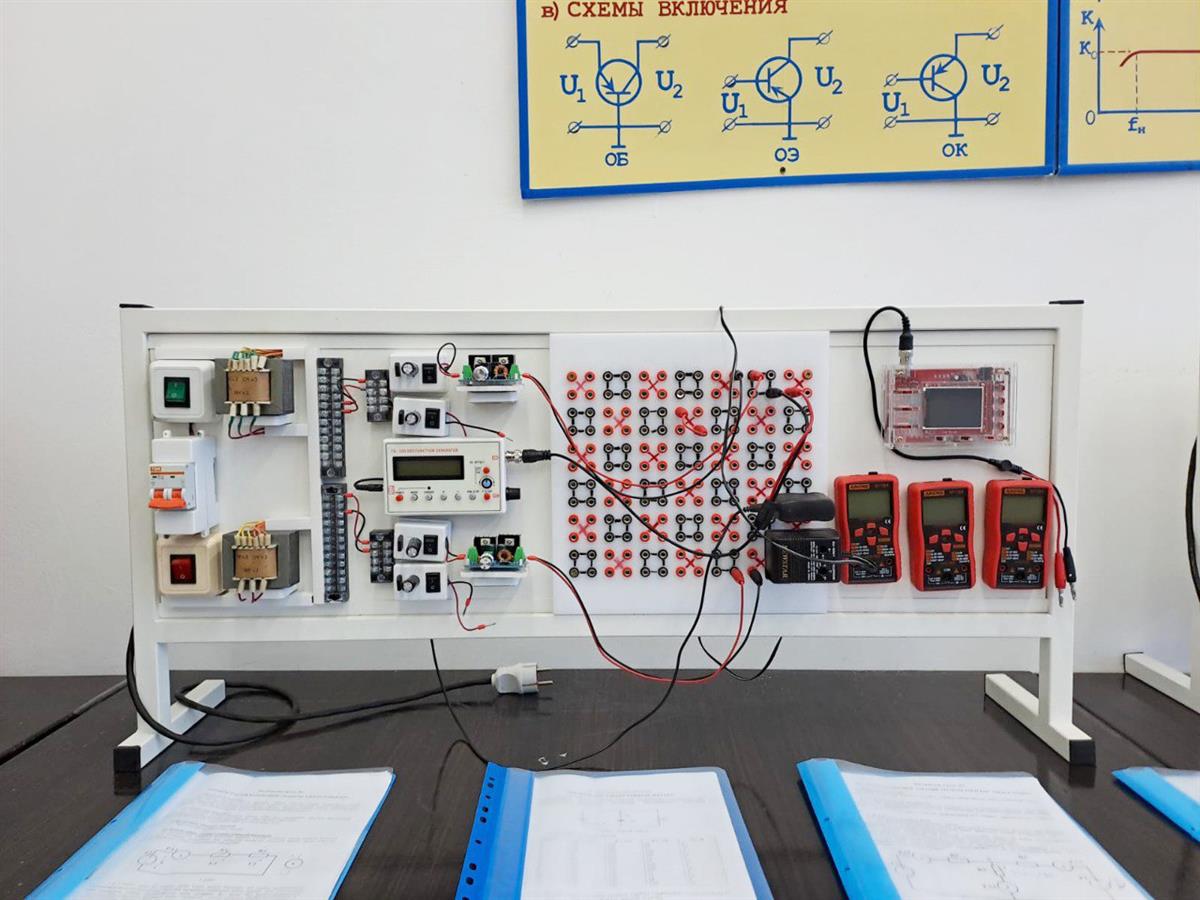
The team of young scientists intends to proceed with product certification and initiate small-scale production in the near future.
The VOLT project’s team
Students from KazNU have developed the VOLT software system for managing solar energy production, aiming to increase the utilization of solar power.
The VOLT program intelligently adjusts solar panels for optimal positioning to capture sunlight efficiently. Leveraging GPS technology, this system is particularly relevant given the current global energy crisis.
"Our innovation is based on the concept that sunlight always casts an 'angle of elevation.' We are confident that our startup will be in high demand. Last December, the country experienced a significant surge in energy consumption, with a historic peak of 16,459 megawatts recorded on December 7, 2022. However, domestic power plants only generated a total of 15,203 megawatts, resulting in a shortfall compensated by unplanned imports from the Russian energy system. Kazakhstani energy consumption is twice the global average and significantly higher than that of European Union countries," explains Asan Abdrahim, a third-year student at the Higher School of Economics and Business and one of the project's authors.
The objective of our project is to harness the maximum energy from the sun, contributing to the global mission of accelerating our country's and the world's transition to clean, green energy. Currently, the software system is undergoing testing on experimental solar panels.
This year, our young scientists aim to develop a computer model that incorporates parameters of a wind turbine alongside this project, with the aim of enhancing the turbine's power output. This initiative will pave the way for the creation of a virtual laboratory using our software package.

Our innovative team aspires to become a leading company not only in Kazakhstan but also in Central Asia, offering cutting-edge technologies to optimize solar and wind energy production within three years.
The VOLT team possesses prior experience in implementing research projects. Previously, students were involved in Battery Recycling, a startup focused on modern technology for recycling lithium batteries and accumulators.
